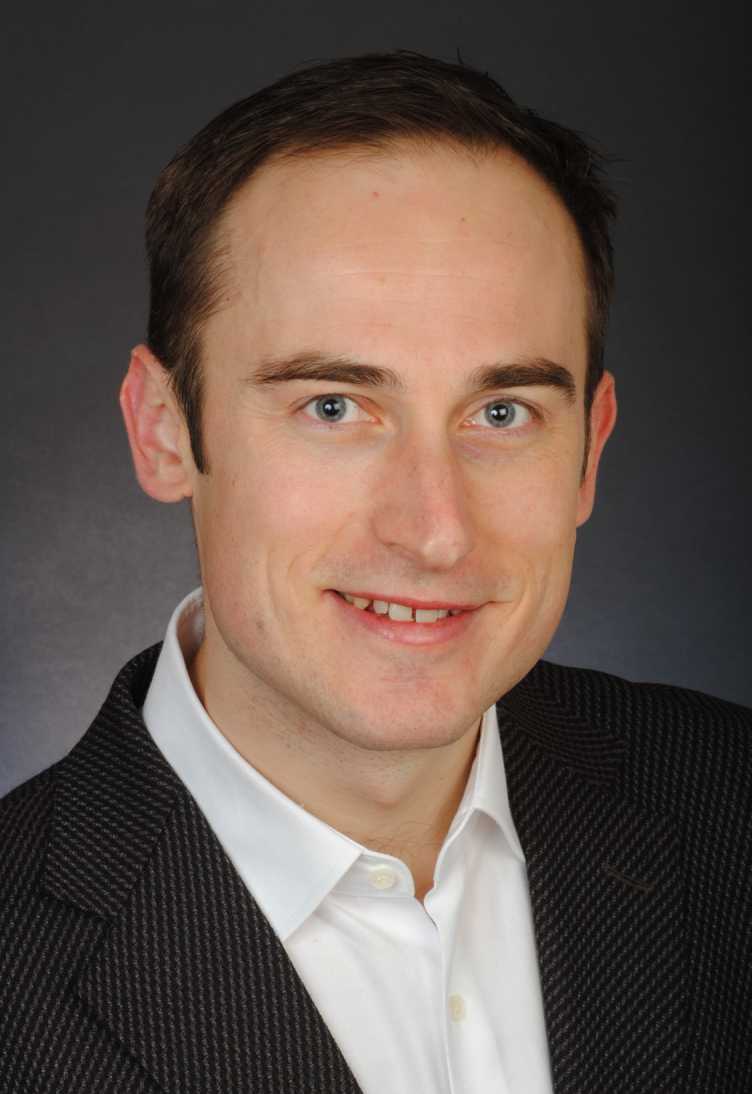Developing the “best” energy systems
Russell McKenna has been appointed Full Professor of Energy Systems Analysis in the Department of Mechanical and Process Engineering. Starting 1 February 2022, the 39-year-old Brit will also head the Laboratory for Energy Systems Analysis at the Paul Scherrer Institute.
Energy systems are at the center of the current discussion on climate change. Were you aware of the importance of your research when you chose this field?
Russell McKenna: Actually, it was the relevance of the field that attracted me to it. During the later stages of my undergraduate studies at the University of Bath, I became more aware of topics related to energy and environment. I was quickly motivated to pursue a career in this area and to carry out research into more sustainable energy systems, and upon completion of my Master in Engineering degree, I was lucky enough to be offered a doctoral studentship from the UK Energy Research Centre. During this three-year project, I researched opportunities for energy efficiency in the UK industrial sector, by applying thermodynamic and economic methods.

What is the main objective of your research?
My research is all about providing decision support relating to (sustainable) energy systems. The large number of available technologies, stakeholders – for example households or companies –and the fact that some measures interact, make the task of finding the “best” approach to sustainable energy very challenging. In the field of Energy Systems Analysis, we develop and apply computer models in order to analyze what the “best” energy systems may look like – bearing in mind that the answer to this question changes a lot depending on factors like your viewpoint, location or budget. This is why interdisciplinary approaches are so important to this field, we need to include diverse viewpoints on the same problems.
What are the biggest challenges?
The Energy Systems Analysis field faces many challenges. One the one hand, researchers have to deal with ever-more complexity as methods are continuously refined, especially in the context of renewable energy systems. On the other hand, the field is criticized for a lack of transparency in methods and assumptions. Both of these challenges present opportunities for the field. Intensified interdisciplinary collaborations can further enhance energy system models, thus improving their consideration of especially non-technical aspects. In addition, the opensource agenda for data and models has considerable momentum and promises to offer increased transparency and co-creation in model development and application.
Why did you originally choose to go into engineering?
Since childhood I have been interested in maths, problem solving and puzzles. This led me into more quantitative subjects at school and then an aerospace engineering degree. When deciding upon degree subjects to study, in high school we only had a vague idea of what engineering involves, which mostly centered around noisy machines and dirty workshops. Only with advice from our teachers at the time were we able to obtain a deeper understanding and appreciate the attraction of applying mathematics and natural sciences to solve real-world problems. In my opinion more needs to be done to educate younger generations on the value and appeal of engineering, or more generally STEM subjects.
You’ve only recently returned from Denmark to the UK to the University of Aberdeen. Why did you decide to take up the position at ETH Zurich?
Indeed – it’s been quite a European tour, but let’s not talk about the B* word! The move across the North Sea from the Technical University of Denmark (DTU) to the University of Aberdeen was to build capacity around the Energy Transition topic there. Aberdeen is well known as the Oil & Gas capital of Europe. This means equal challenges and opportunities in the context of the energy transition: the region obviously has to adapt to become more sustainable, but also has extensive expertise in offshore operations and substantial existing infrastructure, both of which have strong synergies with and potential benefits for offshore renewables sectors.
It has been fascinating to work in this context and to experience first-hand some of the exciting projects underway relating to all colors of hydrogen, Carbon Capture, Utilization and Storage (CCUS) and energy system integration. These synergies have been my main research focus whilst in Aberdeen and were a central theme in setting up the new interdisciplinary Master’s program in Energy Transition Systems and Technologies – both of which I will continue to contribute to.
In the end though, the opportunity to combine the new Chair at ETH Zurich with the Lab at PSI was very attractive. It means combining research and teaching at both organizations and serving as a key link between the two, not to mention the many very competent staff already at the Lab for Energy Systems Analysis at PSI.
As final question, would you tell us one thing about yourself that we cannot learn from your CV?
Outside of work, I like to let off steam with outdoor sports like hiking, mountain biking, skiing and open-water swimming. Switzerland is an excellent backdrop for these hobbies and the freshwater lakes should hopefully be a bit warmer than the North Sea!
*Brexit
Short profile
- 2020-2022 Full Professor in Energy Transition, University of Aberdeen, UK
- 2018-2020 Full Professor & Head of Energy Systems Analysis, Technical University of Denmark (DTU), Denmark
- 2009-2018 Head of Renewable Energy and Energy Efficiency, Institute for Industrial Production, Karlsruhe Institute of Technology (KIT), Germany
- 2005-2009 Doctoral Degree in Industrial Energy Efficiency, University of Bath, UK
- 2001-2005 Master’s Degree in Aerospace Engineering, University of Bath, UK